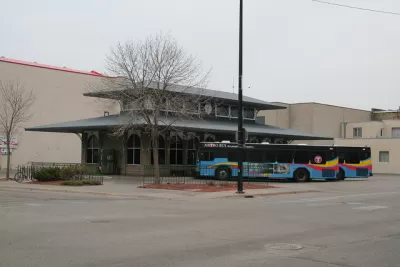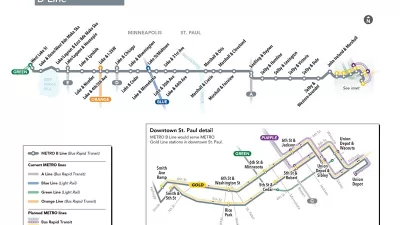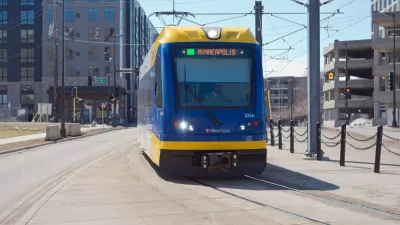Companies struggling to get employees to work are turning to a variety of transportation alternatives not traditionally covered by transit agencies.

In suburban Minneapolis, companies with locations in suburban office and industrial parks face obstacles in getting their employees to work. While transit agencies in the Twin Cities, most notably Metro Transit, provide strong service for suburban workers commuting to the downtowns of Minneapolis and Saint Paul, workers making the "reverse commute" from city to suburb, face spotty service.
The most notable solution to this problem has been made by Amazon, which has a new suburban fulfillment center in the Twin Cities that employs 2,000 people. Amazon is paying a south suburban transit agency, Minnesota Valley Transit Authority, $380,000 to create a special stop on a new bus route and the creation of weekend service. Other companies provide free shuttle buses from locations in Minneapolis to suburban employment locations.
Caren Dewar, executive director of the Minnesota District Council of the Urban Land Institute, questions whether companies will choose to locate, expand or stay in the Twin Cities if the problem isn't addressed. ULI Minnesota calls this a "regional economic imperative." Getting employees to work is a problem companies face in many metro areas across the country, exacerbated by a sprawling development pattern and a jobs/housing mismatch.
FULL STORY: Low-wage jobs are moving to distant suburbs. How will workers get there?

Planetizen Federal Action Tracker
A weekly monitor of how Trump’s orders and actions are impacting planners and planning in America.

Congressman Proposes Bill to Rename DC Metro “Trump Train”
The Make Autorail Great Again Act would withhold federal funding to the system until the Washington Metropolitan Area Transit Authority (WMATA), rebrands as the Washington Metropolitan Authority for Greater Access (WMAGA).

The Simple Legislative Tool Transforming Vacant Downtowns
In California, Michigan and Georgia, an easy win is bringing dollars — and delight — back to city centers.

The States Losing Rural Delivery Rooms at an Alarming Pace
In some states, as few as 9% of rural hospitals still deliver babies. As a result, rising pre-term births, no adequate pre-term care and "harrowing" close calls are a growing reality.

The Small South Asian Republic Going all in on EVs
Thanks to one simple policy change less than five years ago, 65% of new cars in this Himalayan country are now electric.

DC Backpedals on Bike Lane Protection, Swaps Barriers for Paint
Citing aesthetic concerns, the city is removing the concrete barriers and flexposts that once separated Arizona Avenue cyclists from motor vehicles.
Urban Design for Planners 1: Software Tools
This six-course series explores essential urban design concepts using open source software and equips planners with the tools they need to participate fully in the urban design process.
Planning for Universal Design
Learn the tools for implementing Universal Design in planning regulations.
Smith Gee Studio
City of Charlotte
City of Camden Redevelopment Agency
City of Astoria
Transportation Research & Education Center (TREC) at Portland State University
US High Speed Rail Association
City of Camden Redevelopment Agency
Municipality of Princeton (NJ)





























